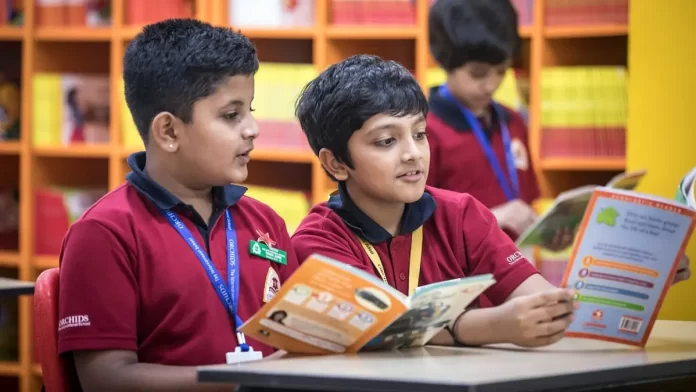Union Minister of State for Education, Annpurna Devi today informed Lok Sabha about the salient features of the New Education Policy 2020.
The government brought the National Education Policy (NEP) 2020 in order to ensure inclusive and equitable, quality, and holistic school education.
The National Education Policy, 2020 aims to revamp the education sector in the country to make education more student-centric and multi-disciplinary.
It aims to pave way for transformational reforms in school and higher education systems in the country.
The policy envisions a complete overhaul and re-energizing of the higher education system to overcome existing challenges and thereby deliver good quality higher education with equity and inclusion.
The Union Minister apprised the lower house of the parliament about the following salient features of the NEP 2020.
Multilingualism
The New Education Policy promotes Multilingualism in both schools and higher educational institutions. Further, it provides for the setting up of an Indian Institute of Translation and Interpretation.
100% Gross Enrolment Ratio by 2030
The New Education Policy 2020 aims for a 100% Gross Enrolment Ratio (GER) in school education by 2030. It also seeks to achieve 100% youth and Adult literacy. Further, GER in higher education is to be raised to 50% by 2035.
New School curriculum
The NEP 2020 provides for a new 5+3+3+4 school curriculum with 12 years of schooling and 3 years of Anganwadi or pre-schooling.
No Hard Separation Between Academic Streams
The New Education Policy emphasizes Foundational Literacy and Numeracy. Hence there will be no hard separation between academic streams, extracurricular, vocational streams in school.
It provides vocational education to start from Class 6 onwards with internships.
Higher Education curriculum to have Flexibility of Subjects. Multiple Entry and Exit, and transfer of credit through an Academic Bank of Credits.
Holistic Progress Card
Assessment reforms with 360-degree Holistic Progress Card and tracking Student Progress for achieving Learning Outcomes.
National Assessment Centre PARAKH
A National Assessment Centre, PARAKH (Performance Assessment, Review, and Analysis of Knowledge for Holistic Development), to be set up as a standard-setting body for transforming Assessment.
State School Standards Authority
Setting-up of State School Standards Authority (SSSA) to establish a minimal set of standards based on basic parameters (namely, safety, security, basic infrastructure, number of teachers across subjects and grades, financial probity, and sound processes of governance), which shall be followed by all schools.
Minimum Degree Qualification for Teachers
Teacher education to move into a multi-disciplinary environment and four-year B.Ed. integrated to become a minimum degree qualification for school teachers by 2030.
National Research Foundation
The New Education Policy provides for the establishment of a National Research Foundation to be established to foster a strong research culture.
Higher Education Commission of India
A Higher Education Commission of India (HECI) will be established as a light but tight Regulation of Higher education. It will be a single regulator with four separate verticals for different functions.
Graded Autonomy to Colleges
NEP 2020 seeks to envisage a stage-wise mechanism for granting graded autonomy to colleges, through a transparent system of graded accreditation, will be established.
It advocates increased use of technology with equity; National Educational Technology Forum to be created.
Gender Inclusion Fund
NEP 2020 emphasizes the setting up of Gender Inclusion Fund, Special Education Zones for disadvantaged regions and groups.
Bal Bhawans
Para 7.11 of NEP 2020, recommends that every State will be encouraged to strengthen existing or establish “Bal Bhavans” where children of all ages can visit once a week (e.g., on weekends) or more often, as a special daytime boarding school, to partake in art-related, career-related, and play-related activities.
It would be pertinent to mention here that Education is in the Concurrent List of the Constitution of India and the setting up of the schools and related institutions are in the jurisdiction of the State and UTs.
Therefore, it is for the respective State Governments to take a decision on setting up Bal Bhavans within their jurisdictional area.
